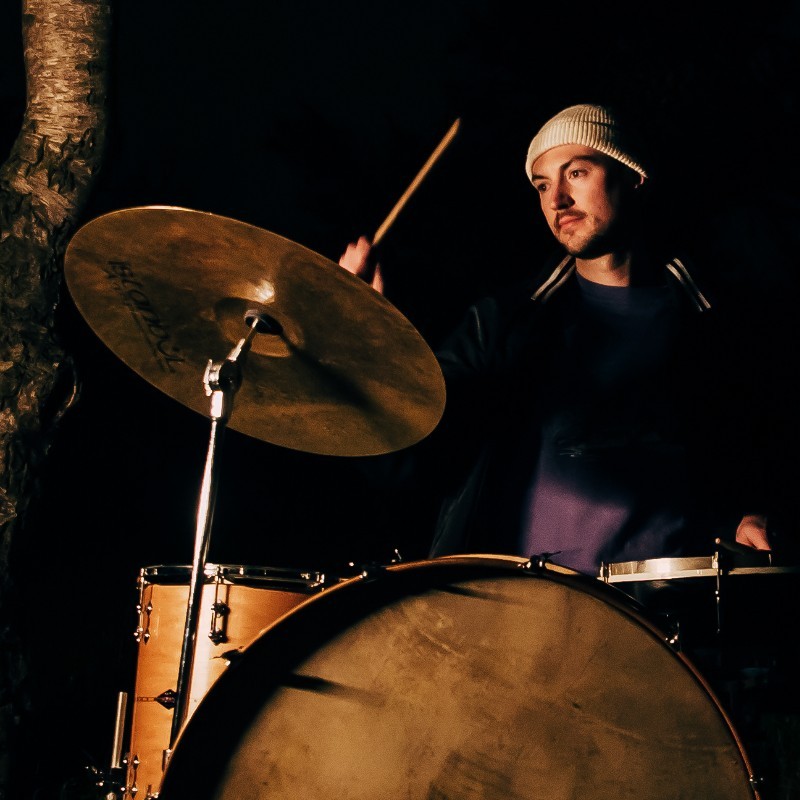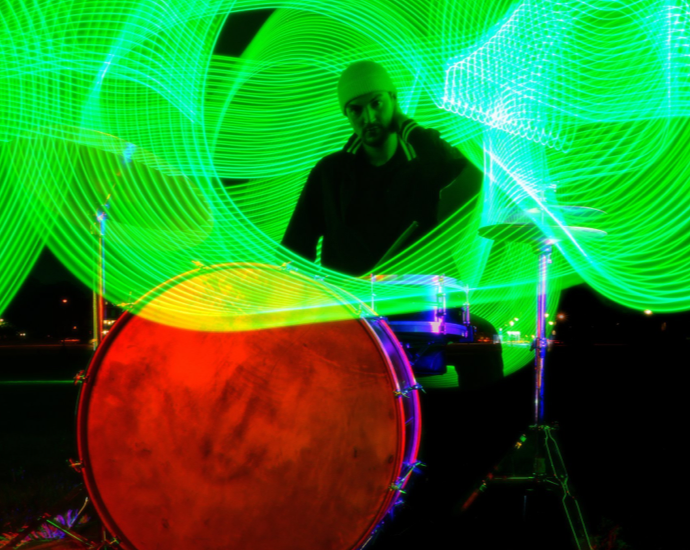Digging into the creative process, Byta speaks with artists, musicians, producers, DJs and anyone involved with music creation. A conversation about how they create, collaborate and share music. From studio setups to routines, and the first person to hear about the next 'big' work.
Where are you based?
London/Basingstoke, UK.
How, when and where did you start making music? Are you primarily a musician or a producer, or do something else?
I’m a drummer, composer, and multi-instrumentalist working in jazz and jazz-adjacent styles. I’m from Glasgow but moved to London in 2011 to study at a jazz school and very quickly found myself gigging and recording.
Who would you consider some of your biggest influences when it comes to your “sound”?
This is always evolving, but some formative influences on my sound include drummers Brian Blade, Jim Keltner and more recently Tony Allen and Jaki Liebezeit. Jon Hopkins’ track Open Eye Signal and Dijon’s track “Many Times” had an influence on my approach to the drums too.
Explain your creative process. Do you have a routine?
My process can be pretty unstructured. In the past I’ve just played loads and allowed space for inspiration to occur. Songs have just appeared through calm exploration. Now that I have a growing family I’m looking at ways of being more deliberate but it’s not a very fixed process, especially given my sporadic schedule as a touring musician.

What is your “studio” setup?
I’m not much of a gearhead, but I’m very proud of my home studio space. It’s a nice airy room with DIY sound panels on the wall, loads of percussion, a couple of drum kits and an acoustic piano that’s midi-compatible. I have microphones that I’m very pleased with and some fruit trees outside the window. Proper little haven.
What is your process when working with other people? How is collaboration different in the studio vs working remotely?
Every collaboration feels different to me so this is a tough one to pin down. That said, I like collaborating in person and remotely and I tend to have ideas so I’m ready to lead things if necessary but allow plenty of space for others’ personalities too. The drums have such inherent power over the mood of a song so I don’t like to dictate too much what other musicians are doing in the music.
At what point(s) are you comfortable letting other people hear what you are working on?
I’ll let trusted family/friends/colleagues listen to things I’m working on throughout the process. Yesterday I let some bandmates listen to terrible voice notes of song ‘ideas’ which I must have thought were good at the time. Embarrassing yourself and finding ways to be comfortable with your inadequacies is healthy for a performer and artist I think.
How do you know when a track/album is finished?
When I listen back and feel satisfied. That’s it.
How do you listen to the final mixes/mastered work?
After I listen in the studio and on my nice headphones I like to listen in acoustically imperfect situations – the car, laptop speakers, phone speakers.
Who on your team gets to hear the final versions first and why, what formats do they each need?
The bandmates and my family and friends get to hear it first – I’ll tend to send a private SoundCloud and/or Dropbox to the wavs and mp3s.
Outside of your inner circle who are the people that will need to hear the new tracks next?
Probably reviewers and broadcasters will hear it next, ahead of release. Sending for feedback and support ahead of the release.
Anything you are working on, anyone you are working with and want to share?
I’m currently very excited for a duo project with Norman Willmore, a saxophonist and multi-instrumentalist from Shetland. We’re working on music from our shared Scottish heritage and presenting it in new ways suitable to the modern era and through the lens of two open-minded jazz musicians.

